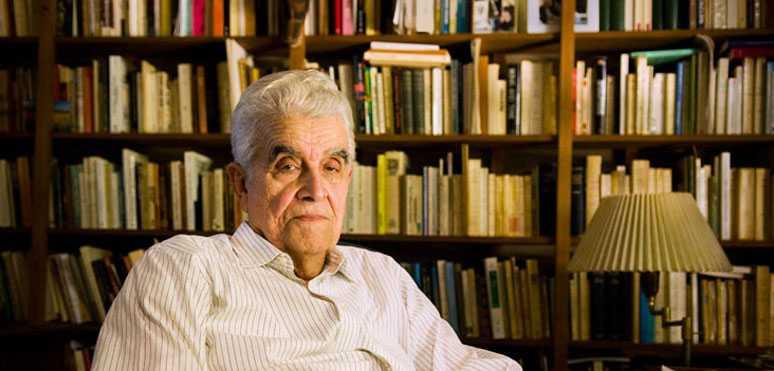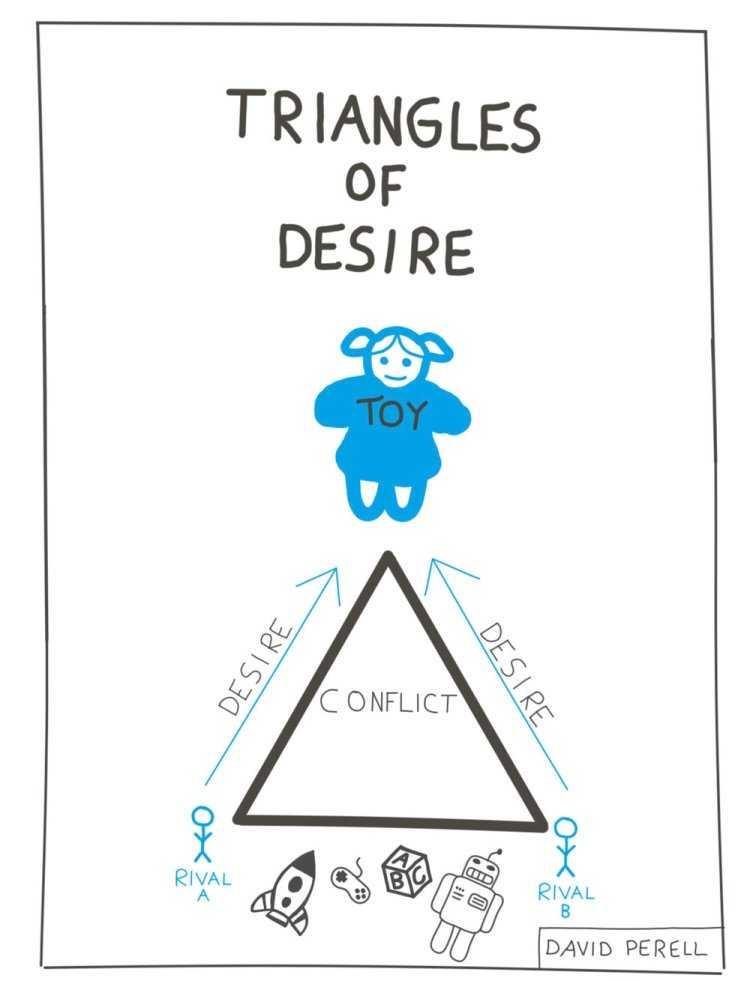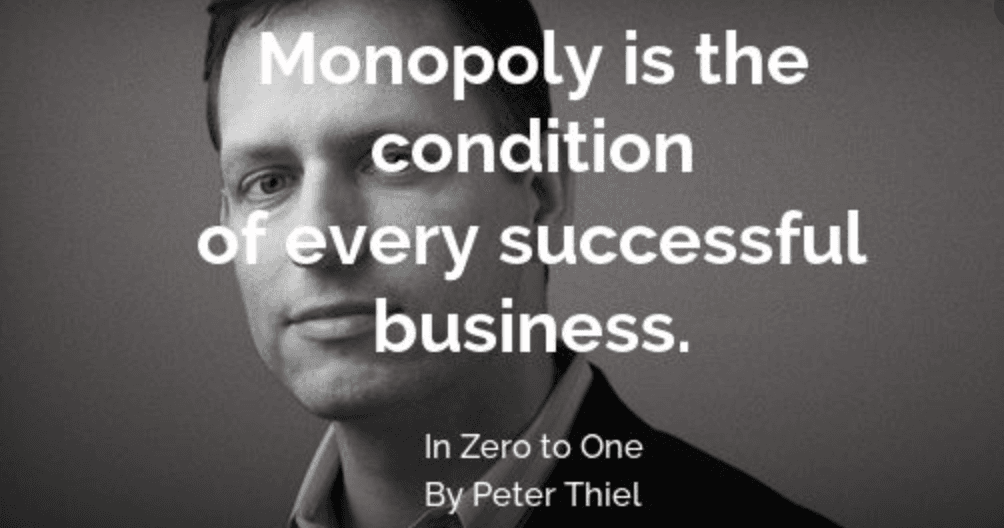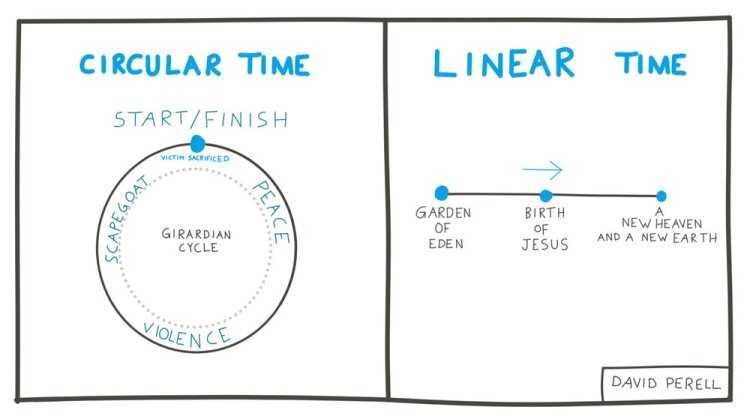Peter Thiel's Mental Framework & Religious Beliefs
Curated from: perell.com
Ideas, facts & insights covering these topics:
11 ideas
·1.74K reads
11
2
Explore the World's Best Ideas
Join today and uncover 100+ curated journeys from 50+ topics. Unlock access to our mobile app with extensive features.
Peter Thiel's Mental Framework
Peter Thiel is an investor who founded PayPal, a believer in Libertarian ideals, a philosopher who found faith in Jesus, a gay Republican & best-selling author.
- He is deeply influenced by Rene Girard, a French historian who postulated that we tend to carry our lives by imitating each other, which leads to inescapable outbursts of violence (aka Mimetic conflict).
- As a solution, Thiel turns to the Christian value of hope. In his reading of history, the non-violence of Jesus is the antidote to Mimetic conflict.
31
471 reads
Rene Girard's Memetic Theory
Mimetic Theory rests on the assumption that all our cultural behaviors, beginning with the acquisition of language by children, are imitative. Girard observed that all desires come from other people. When it goes right, imitation is a shortcut to learning but ... when two people want the same scarce object, they fight.
Girard sees the world as a theatre of envy, noting that Mimetic imitation invariably leads to envy, violence, and bitter, ever-escalating violence.
27
132 reads
Kids, toys & mimetic envy
Girard observed that even when you put a group of kids together in a room full of toys, they’ll inevitably desire the same toy instead of finding their own toy to play with. A rivalry will emerge. Human see, human want.
Our capacity for imitation leads to envy. Babies’ interest in a particular toy has less to do with the toy itself & more to do with the fact that the other babies desire the toy. As soon as one child desires the toy, so do the others. Eventually, even though there are many toys available to play with, all the children want the same toy.
28
122 reads
We buy things we don’t need with money we don’t have to impress people we don’t like.
TYLER DURDEN - FIGHT CLUB
33
178 reads
Good & Bad Imitation
Everybody imitates. We cannot resist Mimetic contagion, and that will never change. But there are bad & good ways to imitate.
- Bad imitators follow the crowd and mirror false idols. This leads us to follow status-seeking games, rather than being selfishly focused on our own growth.
- Good imitators copy a transcendent goal or figure. Follow a role model, someone who you won’t compete with. Associate with people that act as Jungian archetypes more than real people we can fight in real life.
27
102 reads
In business, aim to be unique ... not the best
Michael Porter, the Godfather of modern business strategy, believes that strong businesses should aim to be unique, not the best. Something Peter Thiel also believes: Trying to outcompete rivals leads to mediocre performance, so companies should avoid competition and seek to create value instead of beating rivals.
When you compete to be the best, you imitate. When you compete to be unique, you innovate. While imitation creates a race to the bottom, innovation leads to substantive gains and de-facto market leaders/monopolies.
30
93 reads
Good businesses are monopolies
According to Peter Thiel, monopoly is the end state of every successful business. If you want to create and capture lasting economic value, don’t compete. The more unique companies are, the more the business world can flourish.
Consider the airline industry: it suffers from near-perfect competition. Each year, U.S airlines serve millions of passengers yet make very little money. Google, on the other hand, owns search and is able to make tons of profit from its monopoly. A company should imitate Google more than an airline operator.
23
88 reads
Christianity & the birth of linear time
In most religious traditions time is like a circle: it closes where it opened. In Hinduism, for example, the world spins along an endless cycle: creation, rise, decline, destruction, and rebirth. This conception is very much fatalistic in nature.
Christians, however, see time as linear. It moves away from the Garden of Eden, and toward a day of judgment, justice, and a divine, peace-filled kingdom. With a linear perspective, time moves from the past to the future. Linear time is better because it allows for progress.
26
170 reads
The Girardian Sacrifice
When humans engage in a Mimetic conflict, violence can only be fixed by murdering the scapegoat. This process of killing the victim, again & again, is the main peace pill in an archaic society. People perform ritual sacrifices together, and when a priest is appointed to kill a victim, he kills the victim in the name of the whole community. After all, a community can’t scapegoat somebody unless it thinks the scapegoat is guilty. Once the group ritual is performed, violence is repelled and peace is restored for the community.
Violence is the disease and the cure for the disease.
26
74 reads
Jesus - the ultimate scapegoat
When a scapegoat is sacrificed, peace is restored in the community. Then, the culture lives peacefully for a short time. But eventually, tensions flare and violence returns to the community. To restore the peace, a new scapegoat must be named and sacrificed, which re-starts the sacrificial loop.
Jesus can be seen as the ultimate scapegoat, breaking the cycle, putting humanity on a different path. A path focused on growth & progress. It allows us to work for the fruits of eternity instead of chasing the fleeting pleasures of the day.
31
200 reads
There is something very odd about a society where the most talented people get all tracked toward the same elite colleges, where they end up studying the same small number of subjects and going into the same small number of careers… It’s very limiting for our society as well as for those students.
PETER THIEL
32
115 reads
IDEAS CURATED BY
Life-long learner. Passionate about leadership, entrepreneurship, philosophy, Buddhism & SF. Founder @deepstash.
Vladimir Oane's ideas are part of this journey:
Learn more about religionandspirituality with this collection
Different Easter traditions around the world
The significance of Easter eggs and bunnies in modern culture
The importance of the holiday in the Christian faith
Related collections
Similar ideas
16 ideas
How to know what you really want
psyche.co
6 ideas
The History and Origins of Easter
historyextra.com
4 ideas
Lent, explained
vox.com
Read & Learn
20x Faster
without
deepstash
with
deepstash
with
deepstash
Personalized microlearning
—
100+ Learning Journeys
—
Access to 200,000+ ideas
—
Access to the mobile app
—
Unlimited idea saving
—
—
Unlimited history
—
—
Unlimited listening to ideas
—
—
Downloading & offline access
—
—
Supercharge your mind with one idea per day
Enter your email and spend 1 minute every day to learn something new.
I agree to receive email updates






